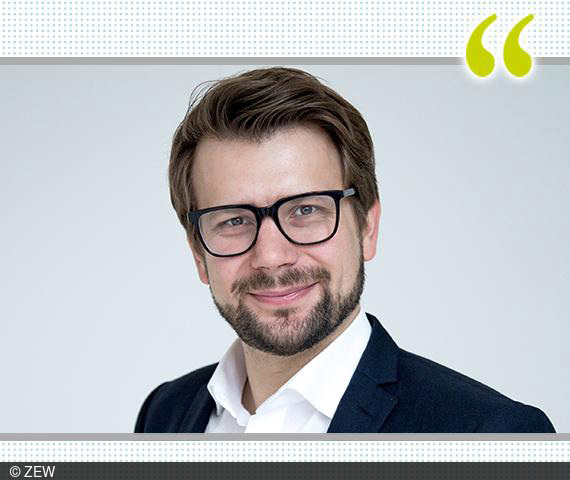The Government Needs to Consider the Social Costs of Laying New Power Lines
CommentThe German Federal Ministry for Economic Affairs and Energy is planning to work together with the state governments to speed up the expansion of Germany’s electricity grid by significantly reducing the length of the planning process for the laying of new power lines such as the Südlink and Südostlink. With this purpose in mind, the government intends to pass a new law to cut through some of the bureaucratic red tape and ultimately allow Germany to take some major strides forward in its planned energy transition. Professor Vitali Gretschko, head of the Research Group “Market Design” at the Centre for European Economic Research (ZEW), Mannheim, shares his view on the government’s plans.
“The plans for new power lines such as Südlink and Südostlink have triggered protests in many of the municipalities through which these lines are supposed to run. Many people living in the affected communities feel that their concerns were not sufficiently taken into consideration during the planning process. The government therefore needs to bear in mind the social costs that can arise even in the planning stages for high voltage power lines.
One solution that would speed up the expansion of the network whilst also keeping the social costs low would be to allow all the residents potentially affected by the power lines to act as bidders in an auction – perhaps at the municipal level. If the power line happens to be laid through a specific municipality, the community would receive a certain amount of compensation calculated on the basis of their bids. The optimal route for the new power line can then be determined based on the solution with the lowest sum total of construction costs and social costs for local residents. The auction could also take into account whether the lines are to be laid under- or overground.
With this method there would be no losers, at least at the municipal level. Participation in the auction would be voluntary and compensation would be paid out based on the communities’ own bids. This would in turn allow the government to save a considerable amount of money, from which society as a whole can then benefit.”
For further information please contact:
Professor Vitali Gretschko, Phone +49(0)621/1235-310, E-mail gretschko@zew.de
